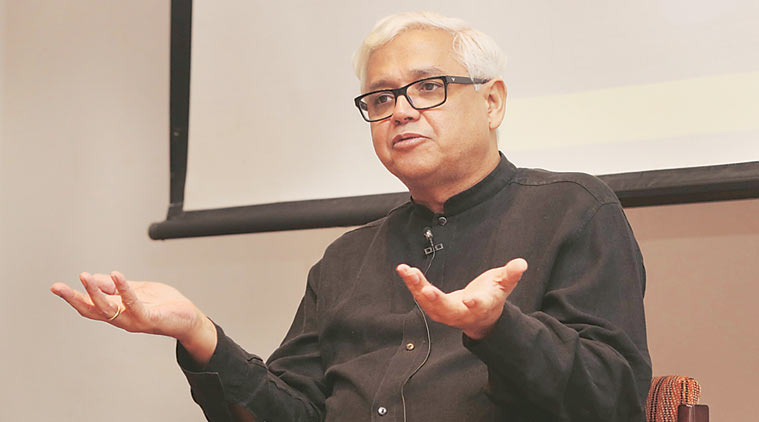Climate change has made Mumbai vulnerable, says Amitav Ghosh
Another aspect that made the potential effects of climate change more worrying for Mumbaikars is that, according to Ghosh, the city lacks cohesive evacuation plans.
 Amitav Ghosh at Nehru Centre for the launch of his book The Great Derangement: Climate Change and the Unthinkable on Wednesday. (Source: Express photo by Dilip Kagda)
Amitav Ghosh at Nehru Centre for the launch of his book The Great Derangement: Climate Change and the Unthinkable on Wednesday. (Source: Express photo by Dilip Kagda)
“This city of Mumbai is directly threatened by climate change. The sea will reclaim the city as water levels rise. And unlike the east coast of India, which almost has an instinctive knowledge of cyclones, the western part of India is woefully inept to deal with them,” said Amitav Ghosh, at the launch of his new book, The Great Derangement: Climate Change and the Unthinkable, at the Nehru Centre here Wednesday.
In a conversation with columnist and writer Anil Dharker, Ghosh expanded on his discoveries and thoughts about climate change.
The effect of climate change on Mumbai was a topic that cropped up continuously during the talk.
Ghosh cited examples of recent cyclones that had formed in the Arabian Sea and hit Yemen, stating that these weather patterns were completely unprecedented as more cyclones had formed in the Arabian Sea than in the Bay of Bengal.
“This means that Mumbai’s location makes it uniquely vulnerable. Unlike New York, this city has no barrier islands. When a storm surge hits Mumbai, it will be monumental in size. The whole city will be blanketed with water,” he said.
Read | Addressing consumption question key to solving climate change issue: Amitav Ghosh
Another aspect that made the potential effects of climate change more worrying for Mumbaikars is that, according to Ghosh, the city lacks cohesive evacuation plans.
“One thing Eastern India does well is its evacuation plans. But how are we going to evacuate 11-and-a-half million people from Mumbai? It is appalling to contemplate. Better planning must be done. Now, the evacuation plans only look at dealing with South Mumbai. What about the rest of the city?” Ghosh said.
He also mentioned the 2015 Paris Climate Change Conference, which outlined climate goals for most countries of the world, saying it was “handing over the control of climate change to private interests”. Arguing that the conference essentially amounted to the liberalisation of climate change, Ghosh said he feared it would become a powerful machine that “would run over us all”.
In response to a question from the audience about technological fixes, Ghosh said he did not believe technology would solve the problems climate change had created.
“We have seen that the more efficient an energy becomes, the more people tend to use it. Moreover, it takes enormous energy to create this green technology. It’s not like solar panels come free. It might be disastrous to build solar and wind technology on such a scale,” he said.
Photos



- 01
- 02
- 03
- 04
- 05
























